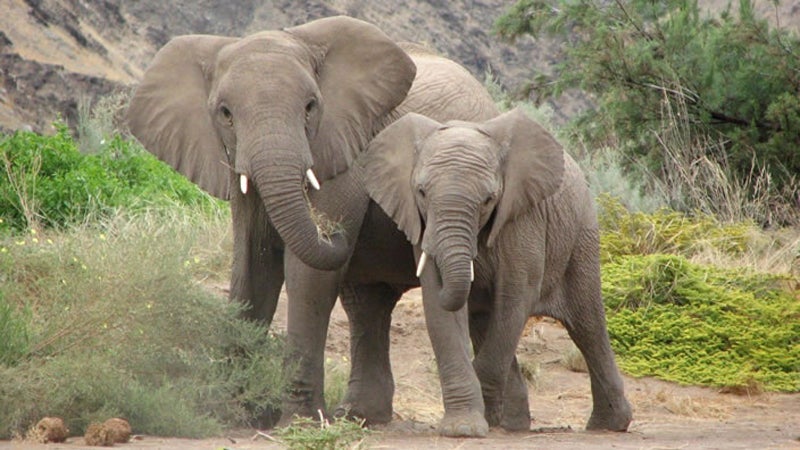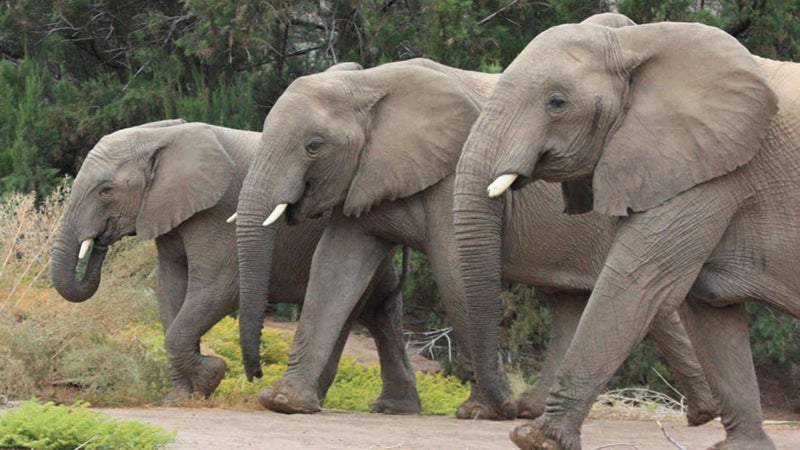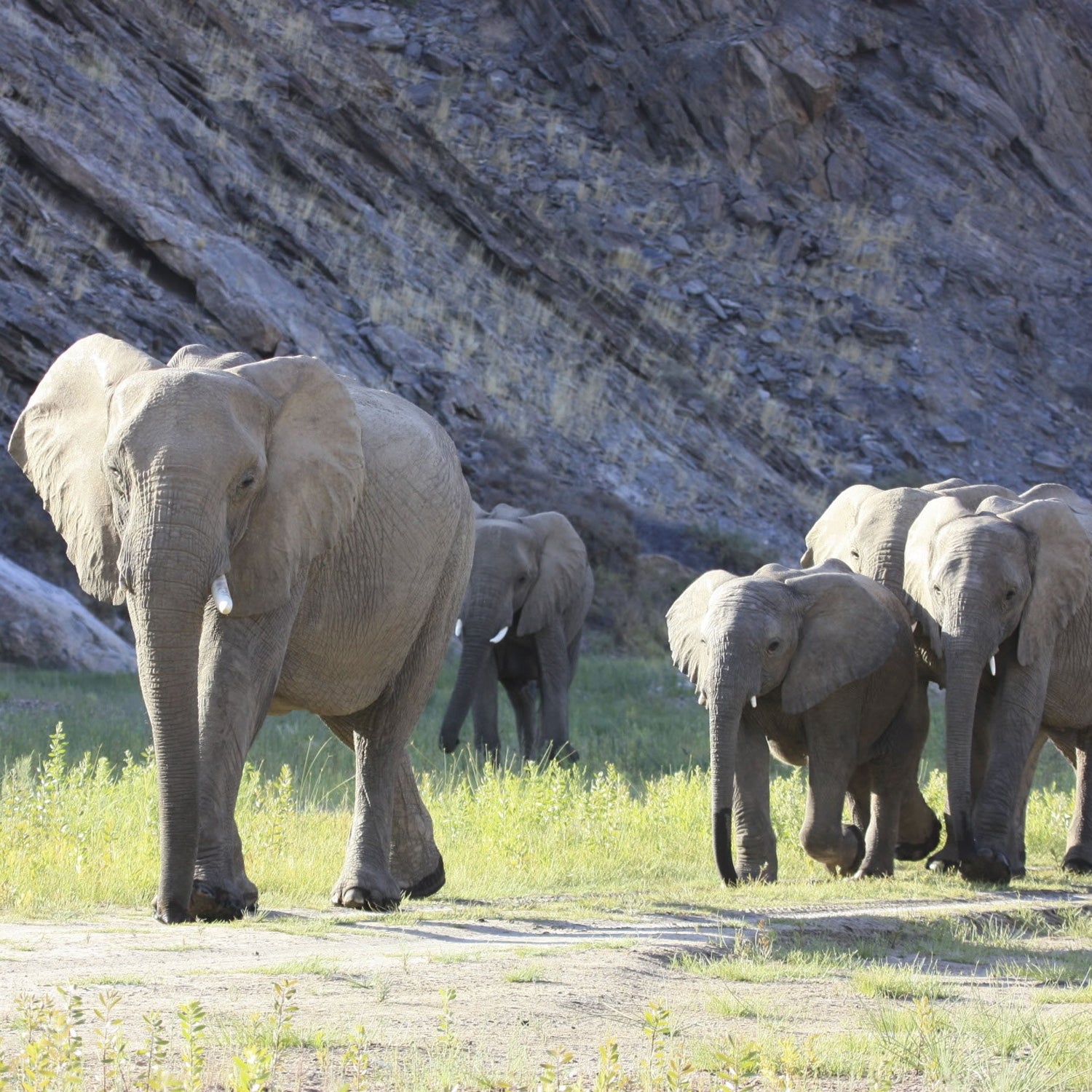Namibia, some would say, is an African country that actually gets wildlife conservation. So much so that a is actually written into its constitution. Which makes it all the more perplexing why the Namibian government has issued permits to hunt its iconic desert elephants.Â
That policy has certainly sparked a lot of Internet outrage. There’s a campaign on Facebook devoted to saving the elephants, and a recent entry expounds on the killing of a 17-year-old bull named Delta, apparently the first elephant shot because of the permits:Â
“Delta was killed close to his family, and a short distance from a school, where there had been peaceful co-existence between humans and animals for some time.”Â

The furor is predominantly based on the fact that only 100 of these animals remain in Nambia, according to Laura Brown, a scientist and the director of . And since word broke about the permits, there have been conflicting news reports, allegations of government secrecy, and suggestions—and c—that the permits were issued in exchange for political votes. So what’s really going on?
The answer is murky, but it starts with how Namibia manages wildlife. In 1996, the Nature Conservation Amendment Act spawned the formation of conservancies, which essentially gave rural communities consumptive and non-consumptive rights to wildlife. There are 79 conservancies, with 240,000 people living in them.
According to Colgar Silkopo, Director of Regional Services and Parks Management at Namibia’s , permit allocations for wildlife occur at the beginning of each year. This year, MET allotted nine elephant hunting permits to six local conservancies in the Kunene and Erongo regions in the northwest—areas where the desert elephants live.Â
Seven of these permits are trophy-hunting permits. And the other two are “own use, which means, they can be used for meat,” explain Silkopo. However, these “non- trophy animals can be hunted by the conservancies themselves or a professional hunter or company they have a contract with.”
But is this actually antithetical to Namibia’s conservation ethos? Like most things about elephants in Africa, it depends on whom you talk to.
Dr. Margaret Jacobsohn is a trustee at Namibia’s Integrated Rural Development and Nature Conservation (IRDNC) and a Namibian anthropologist who has been working in community based conservation for three decades.

She recently wrote an opinion piece for Africa Geographic stating she’s against any elephant hunting, but says that doesn’t mean there’s an irony at play: “No, there’s no irony here. The irony is not in the trophy hunting. Rather, it is that the public—those who do not live with wildlife—is attacking the country with one of the best conservation records in all of Africa.”
CJ Carrington, a South African freelance writer who wrote about the controversy for the organization Conservation Action Trust, says she does find Namibia’s actions antithetical to its conservation mandate, especially because she believes the government has tried to keep the permits on the down-low. “Attempting to keep it secret and then scurrying to provide flimsy excuses—these are not the actions of an institution with nothing to hide.”
What is clear is that the whole concept of wildlife conservation in Africa is altogether complicated. “Listen,” says, Brown, who has been closely studying some 70 of the remaining desert-dwelling elephants for nearly a decade, “there are many different ways African nations maintain wildlife. Some governments throw all the animals into a national park and keep the people out. Some don’t have national parks and all the wildlife is gone. And Namibia has an in-between, where you have these conservancies where people decide the use of the wildlife.”Â
Brown makes a point of explaining that hunting isn’t new in Namibia, just all the sudden attention to it. “Hunting has always been allowed in Namibia. It is always been able to issue permits to hunting. It just hasn’t been highly talked about. In fact, Namibia has been very much ignored [in the conversation about Africa’s elephants] until very recently.”
Brown says that eventually, her organization would like to see people deter elephants with non-lethal means. “That is something we are working towards. “But at this point,” she adds, “the country just isn’t there, yet.”


